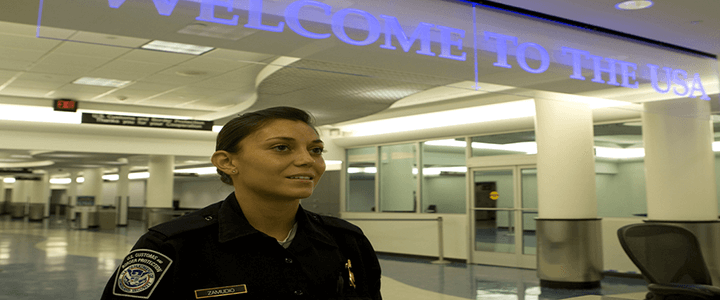Last month, the appropriations subcommittee of the House of Representatives passed legislation fully funding the officer positions at the Transportation Security Administration, and even throwing in a little extra to hire and train new screeners and canine teams. Already facing a higher employee rate of loss than intake in 2017, and a projected 2% increase in air travelers, the agency had been actively recruiting.
Now, because new employees can’t be found soon enough, a TSA hiring spree might well be in the making. You might not need to move far, as jobs are as plentiful as airports. Men and women with a security clearance will have a head start on the competition. Veterans have a particularly strong advantage. That could be you. Are you up for it?
It won’t be an easy job, and it’s not necessarily the job you would expect. Last year, an average of 2.6 million people flew every day, and the problems faced by agents go far beyond the easy notion of a B-movie terrorist in a suicide vest. Thousands of loaded firearms are confiscated annually from flyers. Last month, travelers even managed to set a new single-week record for attempts to board while armed, with 89 guns found in carry-on bags, 74 of them loaded. Twenty-seven had a round in the chamber. (The previous record was set only two months ago, with 82 firearms!) That’s without considering the usual captures at checkpoints: weapons like machetes and throwing stars. Then there’s the flyer this month who tried to bring a sword. Or the one who attempted to sneak a 120 mm tank warhead onto the plane.
The point here isn’t that disgruntled tankers are the new al-Qaeda (it was an inert practice round, though the TSA didn’t know that and had to respond appropriately) or that would-be sky ninjas plan to go full Connor MacLeod on passengers while mid-air. Rather, agents face something even more dangerous and depressing: large numbers of flyers who are dumber than average. The guy stupid and reckless enough to forget the loaded .22 tucked in his waistband is just the sort of person likely to have one drink too many at Chili’s Too, and get into a heated argument somewhere over the Midwest. It’s up to the TSA to stop that guy from bringing a gun to a reclining seat fight.
what tsa JOBS are available?
Jobs available at the TSA are varied and hard to categorize, walking a line between law enforcement and spy agency. There are, of course, the typical positions found in any large organization—things like accounting, IT, and management—but consider the unusual: jobs like the agency’s VIPR Teams—short for Visible Intermodal Prevention and Response, and pronounced viper—which provide security services away from airport checkpoints. If you’ve flown much, you’ve probably spotted them patrolling airports, but their responsibilities go far beyond the terminal. They work major events with national security implications, such as Super Bowls and presidential inaugurations, and have security roles at railroad and bus stations, in tunnels, on ferries—anywhere, basically, that involves vehicles that float, fly, or roll.
Canine teams, meanwhile, have become a fixture of post-9/11 America and a symbol of soldiers in combat theaters. The House appropriations budget provides funding for 1,047 Homeland Security canine teams (up from 56 in 2001), and the report language accompanying the bill insist upon an expansion of the program. The teams have a lot in common with those found overseas, even training for explosives detection at Joint Base Lackland in San Antonio under the same U.S. Air Force wing as military working dogs. Canine team qualification involves an intensive three month school for dog and handler, and once deployed to airports and other transportation centers, teams receive weekly proficiency instruction and annual re-certification. It’s a hard job, but one vital to the U.S. transportation system.
The crown jewel of TSA is perhaps the Federal Air Marshal Service. The training alone makes the job worth trying for—as exhilarating and challenging as any special operations course. Just consider the risk and limitations of the job: You’re working alone at 30,000 feet, and if you’re needed, you might be physically subduing one or more would-be hijackers or hostiles. You might necessarily draw a pistol and have to neutralize a threat in a crowded, pressurized tube that’s filled with awkward obstacles, from narrow aisles to overhead bins. (Air marshals have the most stringent firearms qualifications of any members of federal law enforcement.) You’re blending in, working from intelligence assessments, and profiling a cabin for potential threats. The people you’re after made it past the feds and police, bomb dogs, and entry checkpoints, which means they’re smart, disciplined, and determined. You have to be better than them.
TSA agent is right up there with traffic cop in terms of someone you’re never really happy to see, while still wanting them to do a good job. If you have what it takes to be on the other side of the baggage scanner, or legally armed on a plane, this is the time to jump on a TSA job. The pay can be good and the job is meaningful. You have a clearance. Why not put it back to work to keep the country safe?


